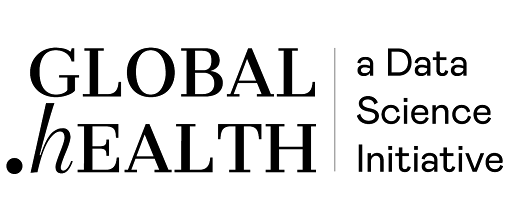Frequently Asked Questions
Below are answers to common questions about Global.health.
Don’t see yours here? Feel free to reach out to our team!
Global.health is a not-for-profit data science initiative and international consortium of researchers, engineers, designers, and volunteers tracking, standardizing, and organizing open-access epidemiological data for the public health community. You can find out more about our team, funders, and partners on our About page.
You say the dot! (“Global dot Health”) Keep reading to learn more about us.
Our mission is to enable the rapid sharing of trusted and open public health data to advance the response to infectious disease during the early phase of an outbreak, for the first 100 days, when the chance for containment is highest.
Global.health was developed by an interdisciplinary group of researchers (epidemiologists and computational scientists) and enabled by a philanthropic contribution from Google.org in 2020. Please visit our Press section for more information on G.h’s origin story.
Global.health is funded by grants from Google.org, The Rockefeller Foundation, the Oxford Martin School, and the Wellcome Trust, as well as in-kind support from our participating institutions and partners. You can find funding information on our About page.
Both! Global.health is free to use for research purposes. If you choose to access, download, or use the data, we ask that you adhere to our Terms of Use, Privacy Policy, and Citation Guidelines. All code used to build the Global.health platform is openly available under the MIT License. You can find all associated documentation on our GitHub.
Epidemiological line-list data are available for each of our outbreak response efforts. Visit our Outbreaks page to access line-list data, maps, briefing reports, and other outbreak resources. For avian influenza, we also produced a multi-modal timeline that brings together disparate data sources into one comprehensive view for an integrated approach to surveillance, and includes human epidemiological data, animal outbreak data, genomic data, wastewater data, and research and response highlights in an easy-to-digest timeline.
“Line-list” data capture granular, individual case details such as age, gender, symptoms, diagnostics, treatment, status, outcome, occupation, contacts, transmission, travel history, and genomics. Each individual case is entered as a unique row in a list format, creating a line-list of data. These data are critically important to identify the origins and evolution of new outbreaks.
Line-lists are built using a collection of publicly available digital media sources and are a mix of official (government) and unofficial information from global / regional / national / local levels. Each entry in the database has an associated URL pointing to the original source(s) of information for transparency and information sharing.
All data on the Global.health platform goes through a rigorous curation, ingestion, and verification process managed by a team of researchers, graduate students, and volunteers at universities and institutions across the world. Our G.h newsletters offer insights into the curation process and highlight the challenges of building a real-time outbreak dataset.
We have a standard schema for line-list entries based on research with numerous public health agencies and subject matter experts. Each record contains up to 40 fields of metadata. You can access our data dictionary on GitHub, and a description of our curation process is detailed in our peer reviewed publication in Nature Scientific Data.
Data are de-identified to protect individual privacy. Data are aggregated to a reasonably crude spatial resolution (administrative level 3) and only openly available data are ingested. Further, any unique identifiers are removed (such as names or addresses), and age is entered as a numeric range instead of using a specific number.
Our repository and data exports are published under the CC BY 4.0 license.
1) Please cite the data by first citing the underlying appropriate data descriptor:
Xu, B., Gutierrez, B., Mekaru, S. et al. Epidemiological data from the COVID-19 outbreak, real-time case information. Sci Data 7, 106 (2020). https://doi.org/10.1038/s41597-020-0448-0
Kraemer, Tegally, Pigott, Dasgupta, Sheldon, Wilkinson, Schultheiss, et al. Tracking the 2022 Mpox Outbreak with Epidemiological Data in Real-Time. The Lancet Infectious Diseases. https://doi.org/10.1016/S1473-3099(22)00359-0
2) AND when the data was downloaded:
Global.health [Outbreak name] data. Accessed on YYYY-MM-DD from https://global.health.
Protecting privacy is central to our values and mission. In addition to our own standard of care in ensuring all data on our platform has been de-identified, we performed a Data Protection Impact Assessment (DPIA) which is common practice when dealing with health data.
No. You do not need an account to explore our website, our outbreak data, or our tools.
However, you will need an account to access our curator portal for COVID-19, with over 100 million records, to search, explore, and do deep dives into the dataset.
We welcome your contributions. Follow instructions for how to contribute on GitHub.
Please visit our GitHub account to raise a bug or suggest a new feature. All code is accessible and you can make pull requests, too. You’re also welcome to reach out to us via email.
Please see our API documentation and instructions on GitHub.
You can explore the latest research enabled by Global.health data here.
Our vision is to make Global.health an open-access data-sharing platform that empowers the international public health community to better understand, anticipate, and scale responses to infectious diseases. Our hope is to expand the capabilities of our platform to integrate diverse data sets and help develop new standards for open access public health data.
We’d love to hear from you! Please send us an email and a member of our team will follow up.

